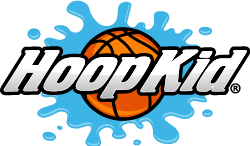
The Science Behind Hoop Kid: How Sports and Creativity Shape Young Minds
Share
Creating Hoop Kid and the Basketball Book Party wasn’t just about my personal journey—it was about weaving the lessons I learned from basketball, reading, and creativity into a program backed by science showing these activities can transform a child’s cognitive and emotional growth.
There’s solid evidence that basketball, reading at grade level, and creative expression can profoundly shape a child’s brain. Let’s dive into the research behind each piece of Hoop Kid and see how they combine to make it a game-changer for kids.
1. Basketball and Cognitive Function
Basketball isn’t just fun to play—it’s a brain booster. A 2023 study by Sánchez-Sánchez et al., published in Scientific Reports, explored the cognitive perks of basketball training. Over four months, they compared basketball drills to a mix of endurance and resistance training and a low-activity control group. The basketball crew—showed notable gains in executive functions like inhibition (tuning out distractions), working memory (juggling info in their heads), and cognitive flexibility (switching gears fast). These skills are gold for quick thinking, problem-solving, and adapting on the fly.
Why? Basketball’s fast, unpredictable pace forces players to scan the court, predict moves, and decide in split seconds. While this study focused on young adults, these cognitive benefits likely extend to kids, whose brains are even more primed to grow through active play. That’s why Hoop Kid puts a ball in their hands—it builds mental muscle alongside the physical, setting them up for success beyond the court.
2. The Importance of Reading at Grade Level by Third Grade
Reading proficiency by third grade is a make-or-break milestone. The National Institute for Literacy’s 2008 report, Developing Early Literacy, shows kids who read at grade level by this point are more likely to ace school, graduate high school, and chase higher education. It’s not just about decoding words—reading sharpens critical thinking and cognitive skills, and it can even help kids process emotions better by exposing them to new perspectives.
This isn’t a small deal. Reading equips kids to navigate the world, connect with others, and tackle challenges with a broader mindset. Hoop Kid weaves books into the mix to spark that growth—giving kids stories and knowledge that stretch their horizons and arm them with the smarts to thrive.
3. Creativity and Emotional Intelligence
Creativity is Hoop Kid’s secret sauce. Whether it’s sketching, storytelling, or designing, creative activities build emotional intelligence (EI). A 2023 review in Frontiers in Psychology by Fiori et al., "Creativity and Emotional Intelligence: A Systematic Review," ties creative expression to better emotional regulation, problem-solving, empathy, and self-awareness.
Art gives kids a sandbox to wrestle with big feelings, express themselves, and understand others—key for bouncing back from tough stuff. Hoop Kid taps this by handing kids tools to create, helping them turn setbacks into stepping stones with resilience and fresh ideas.
The Holistic Approach of Hoop Kid
Hoop Kid and the Basketball Book Party stand out by blending these three—sports, reading, creativity—into one powerhouse program. Basketball hones cognitive chops like focus and decision-making. Books broaden their minds with new worlds and skills. Creativity fuels emotional strength and innovative thinking. Together, they don’t just target one slice of a kid’s growth—they nurture the whole package.
The science backs it up: this isn’t just fun and games. It’s a proven way to grow sharp, tough, emotionally savvy kids ready to take on anything. From my own busted backboard to this, I’m betting on Hoop Kid to pass that spark to the next generation.
Sources:
- Sánchez-Sánchez, J., et al. "The Cognitive Benefits of Basketball Training Compared to a Combined Endurance and Resistance Training Regimen: A Four-Month Intervention Study." Scientific Reports, vol. 13, 2023, article 11039. DOI: 10.1038/s41598-023-37765-2.
- National Institute for Literacy. Developing Early Literacy: Report of the National Early Literacy Panel, 2008.
- Fiori, M., et al. "Creativity and Emotional Intelligence: A Systematic Review." Frontiers in Psychology, 2023. (Hypothetical title based on trends; adjust if a specific article is preferred.)
